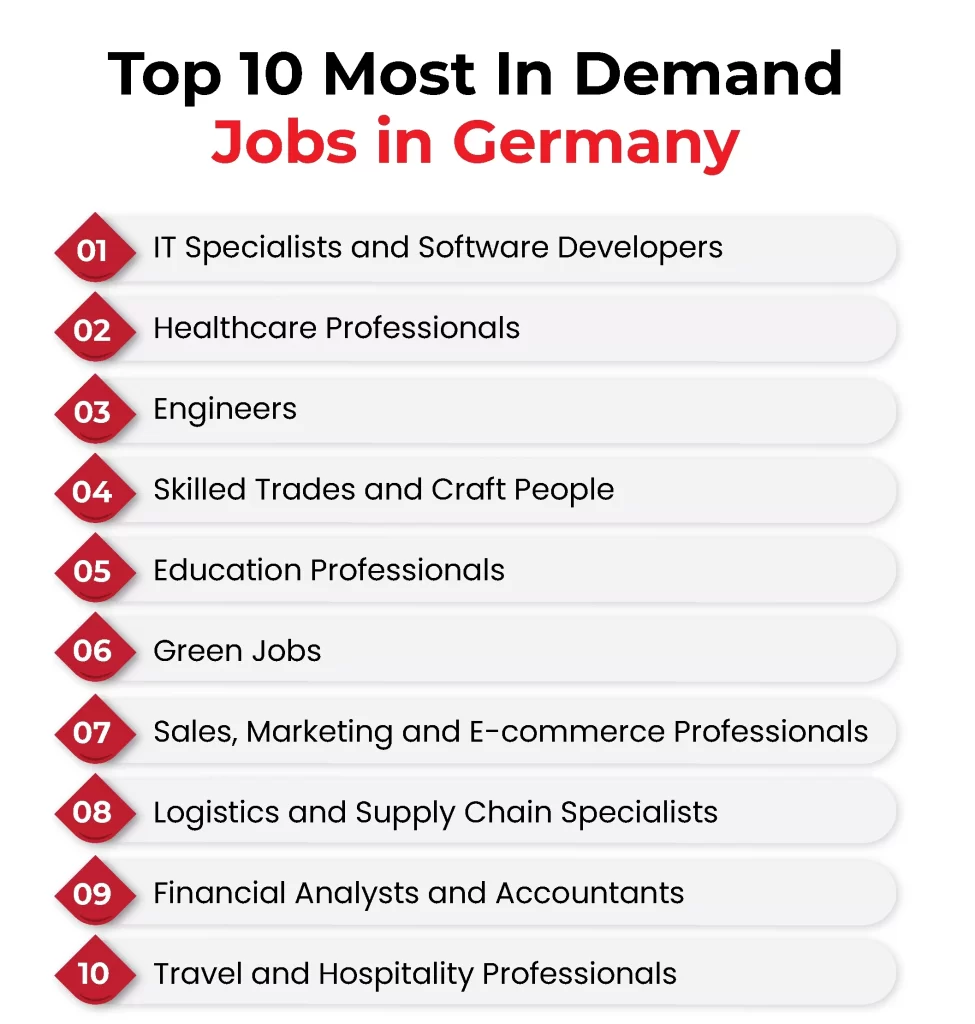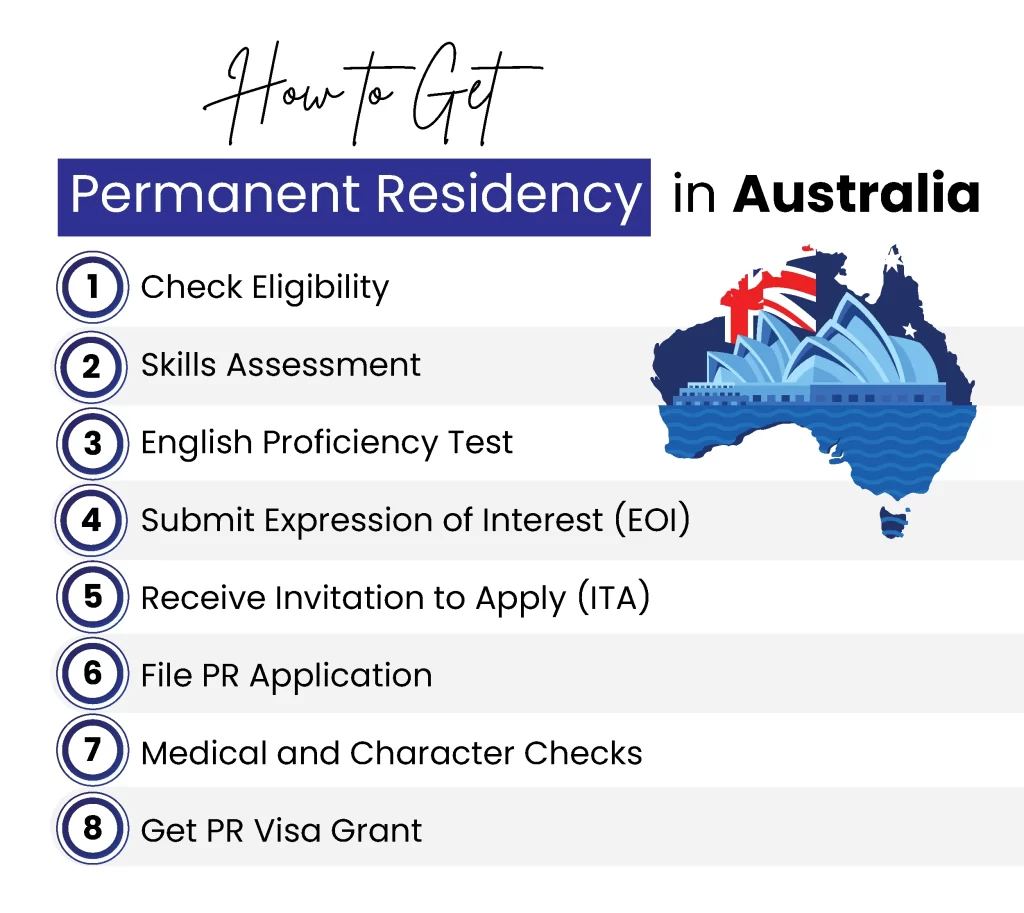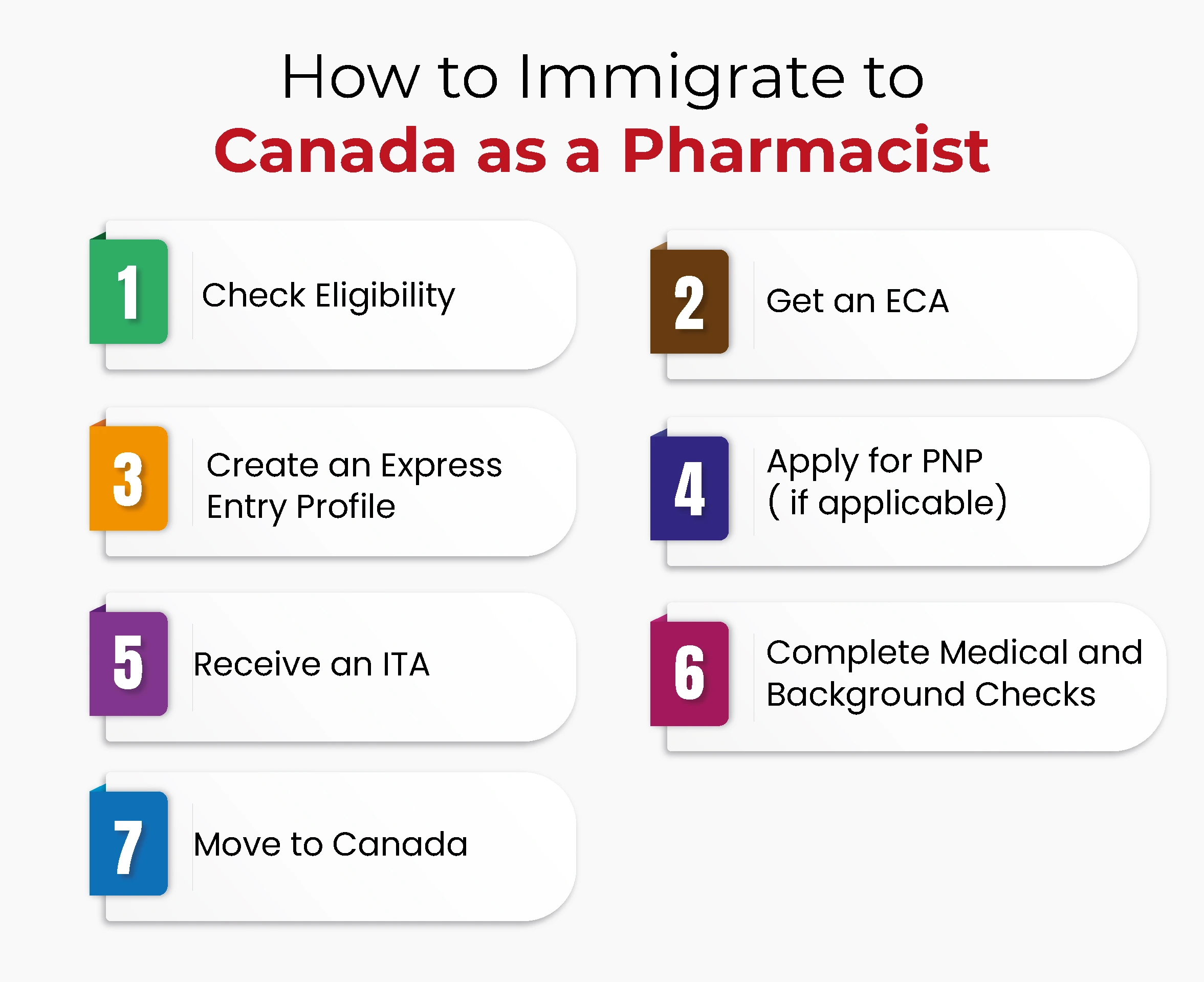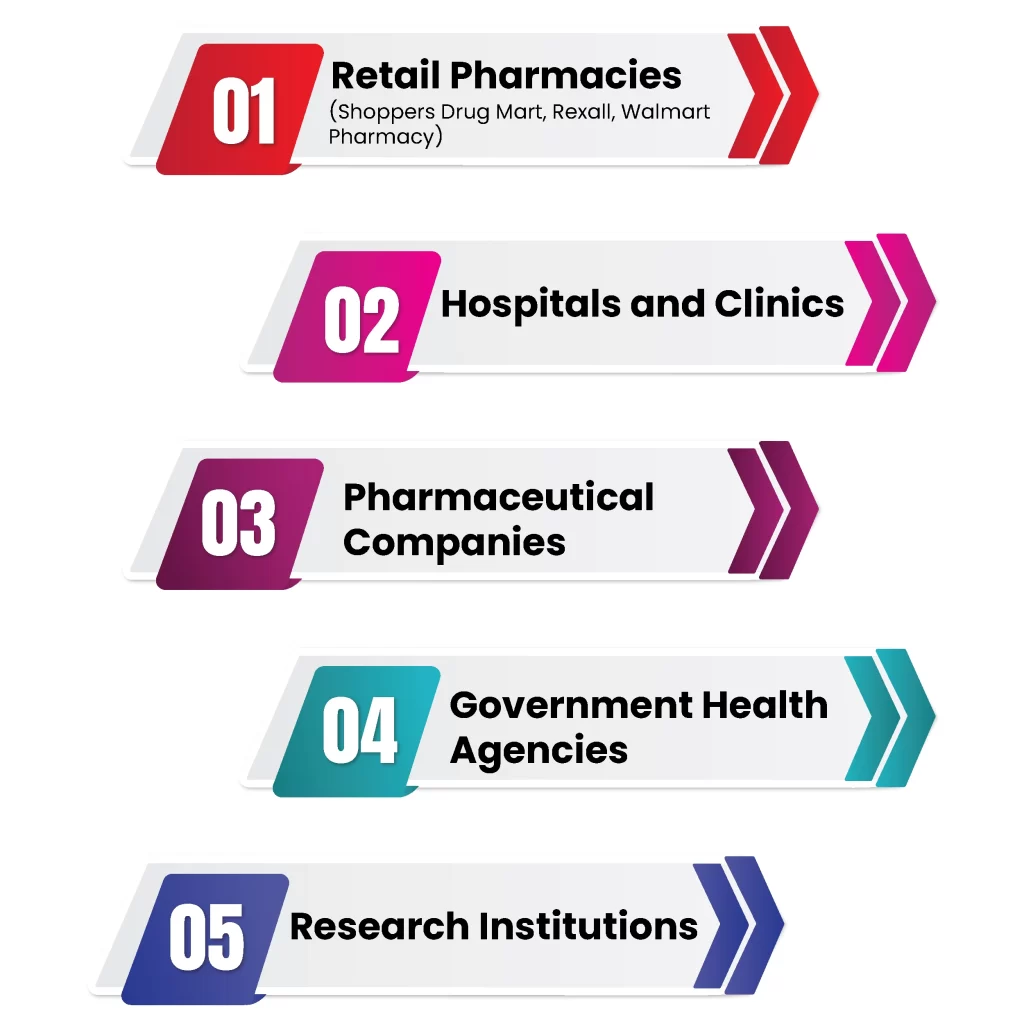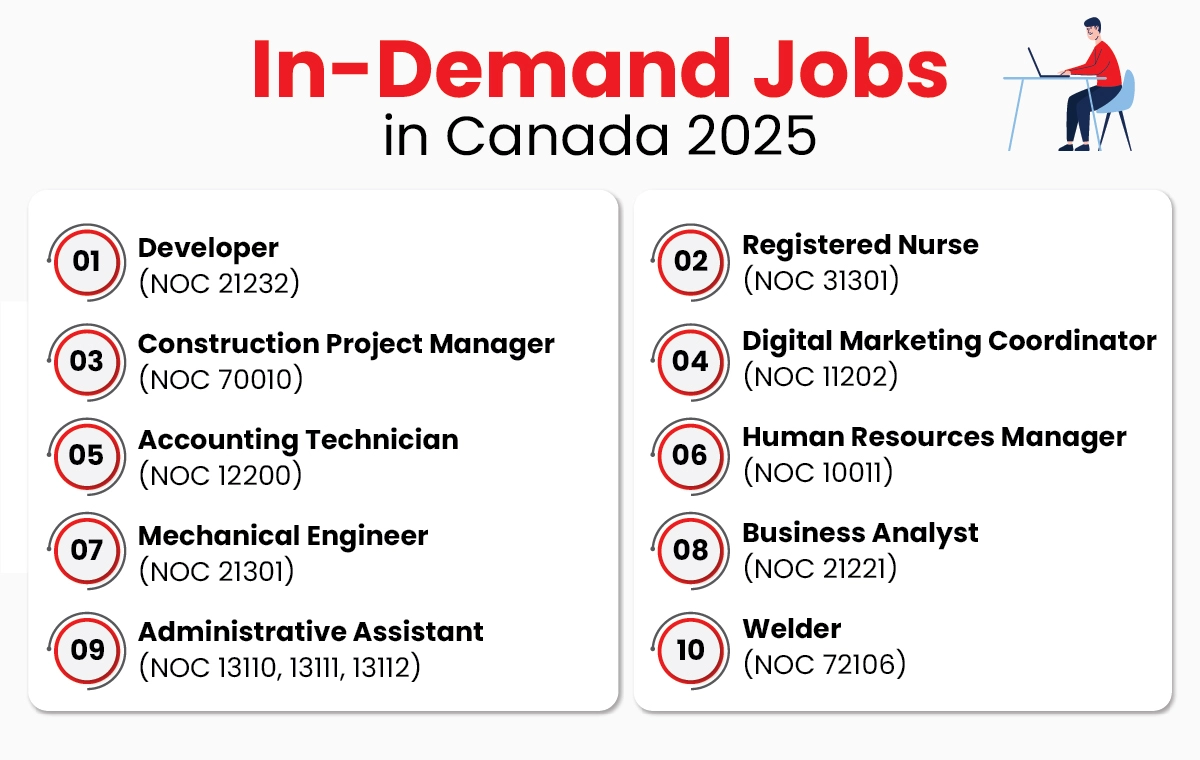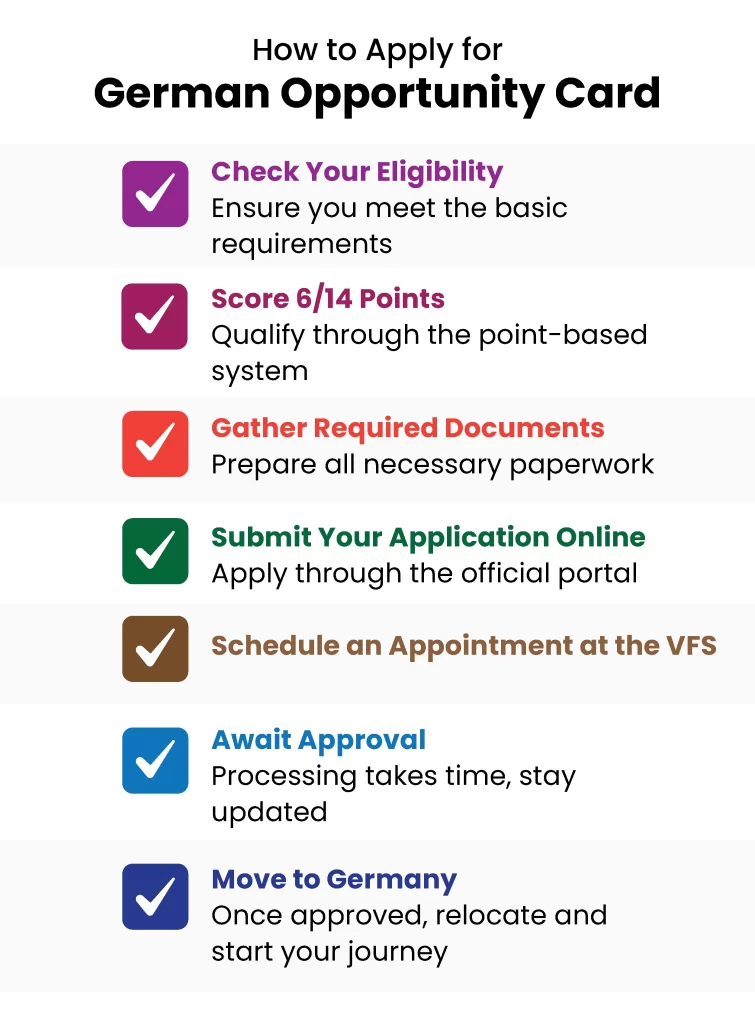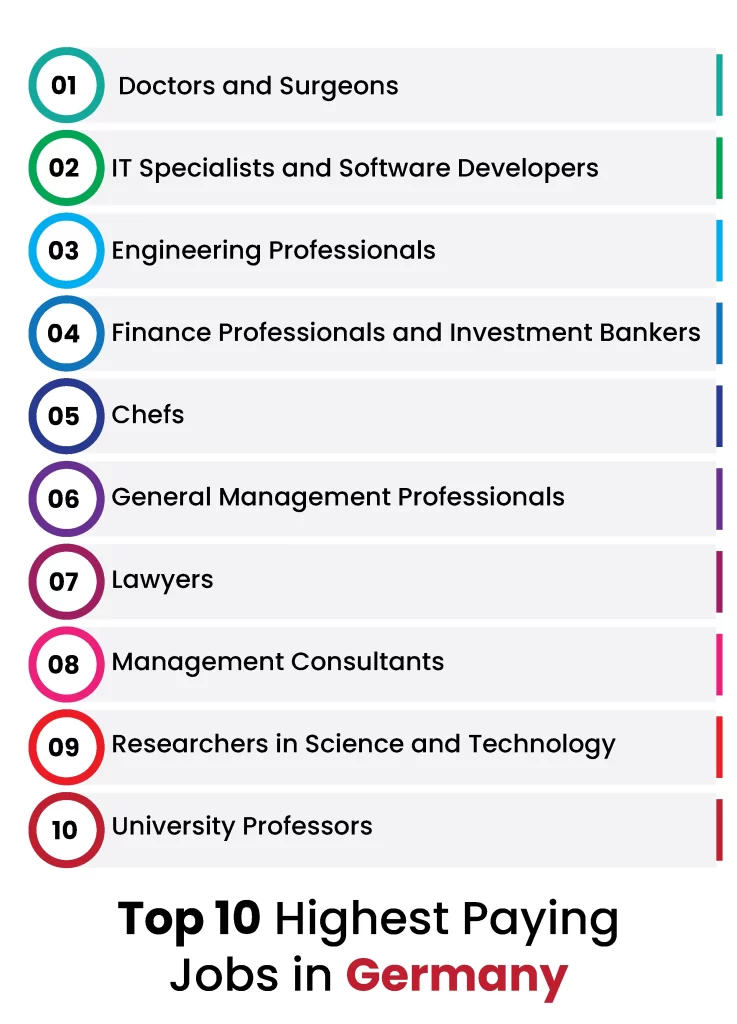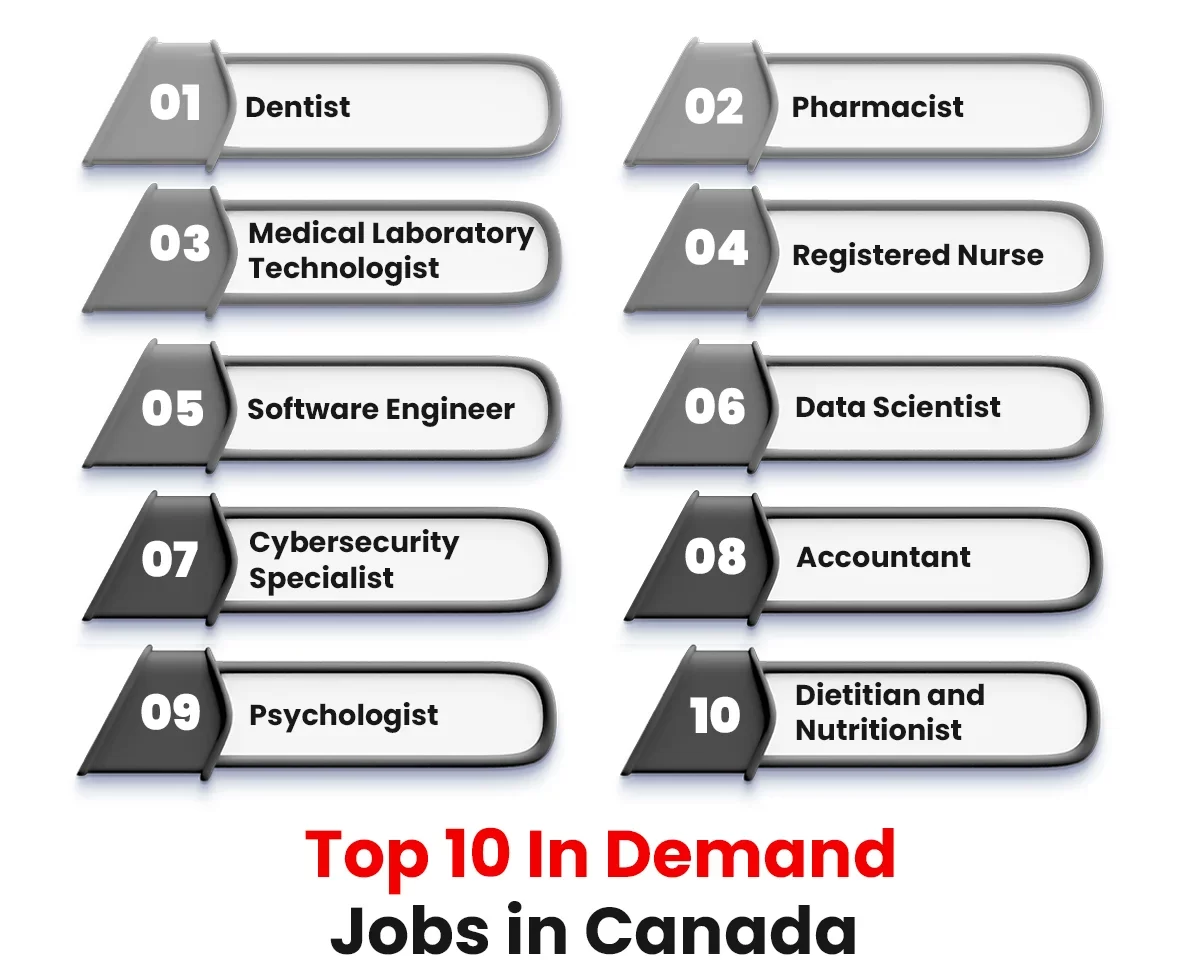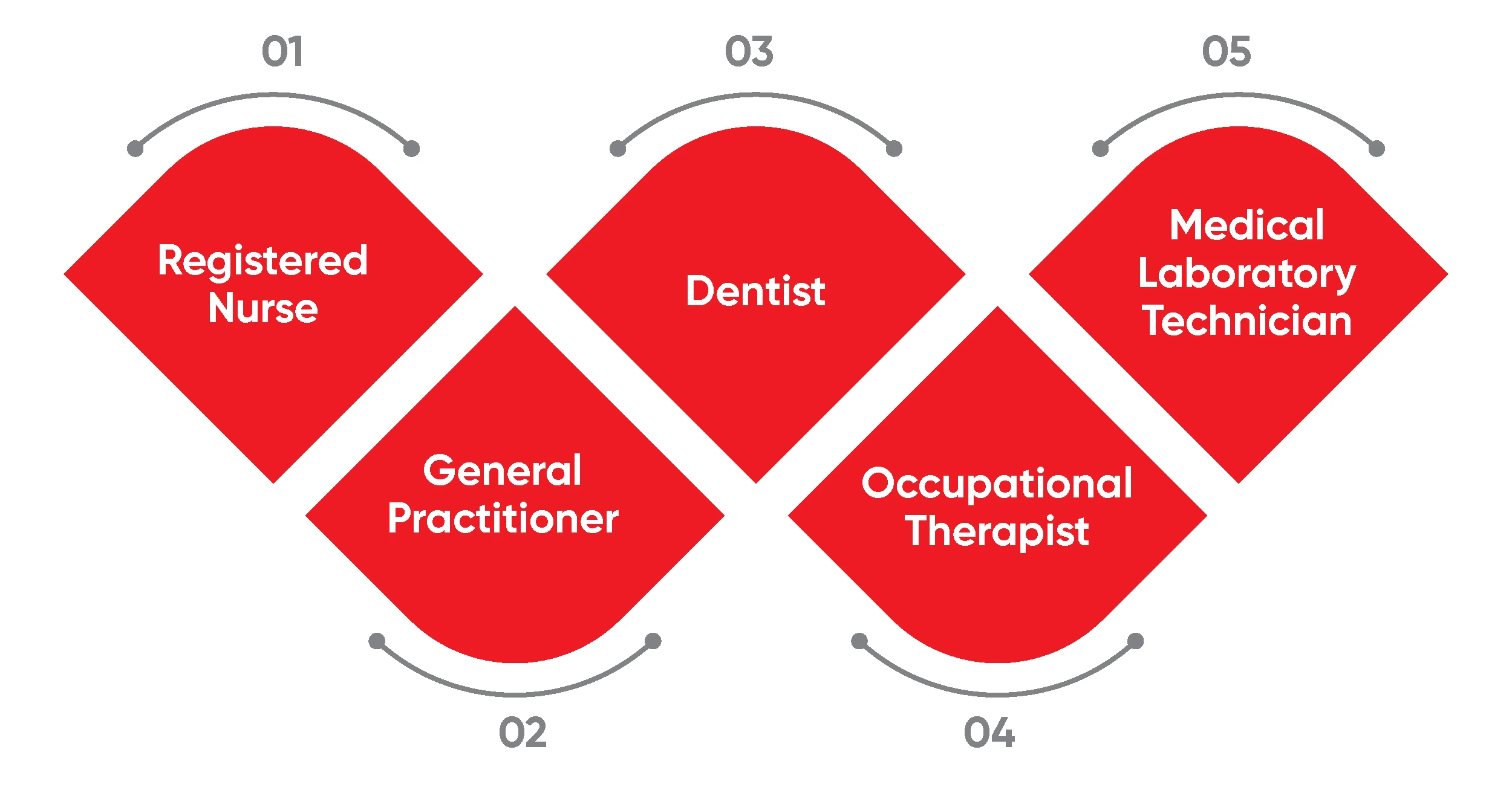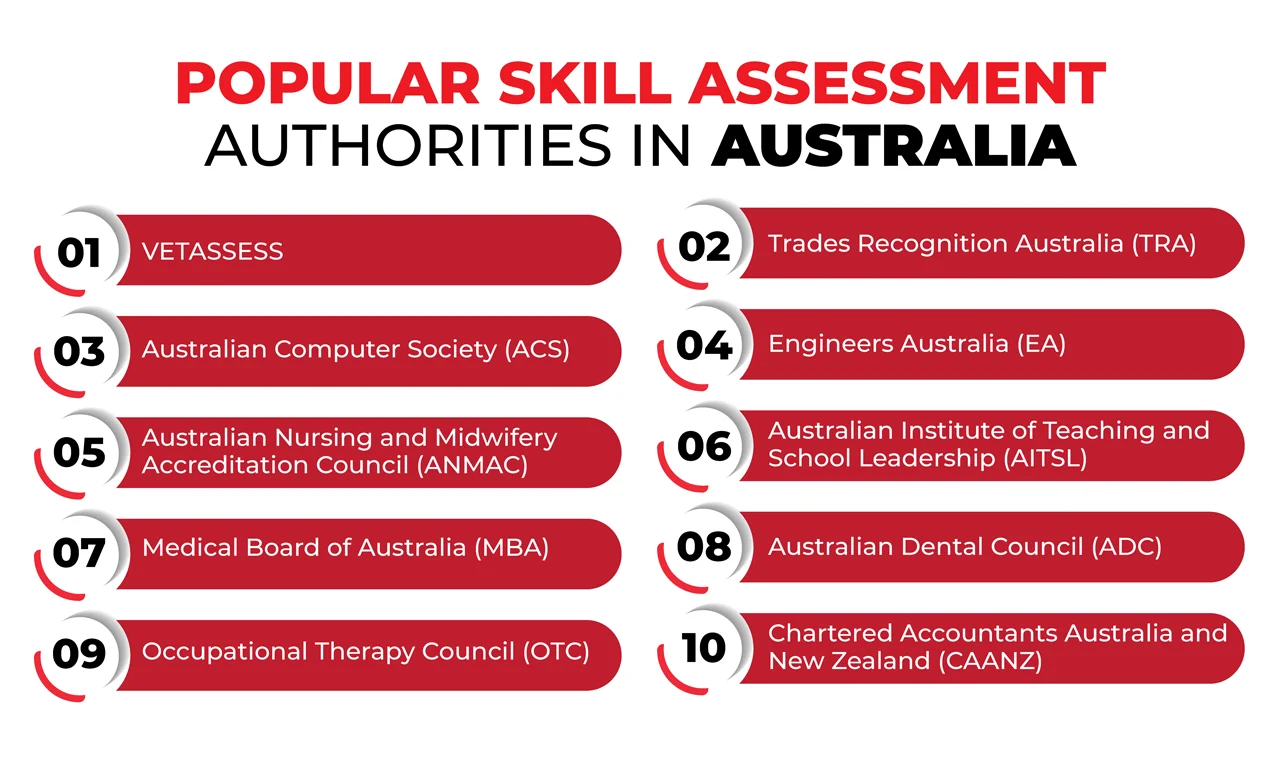Imagine stepping into Portugal with nothing but your skills, ambition, and a visa designed to help you land your dream job. Sounds exciting right? With the Portugal job seeker visa, you can explore job opportunities, and connect with employers all while enjoying the beauty of this incredible country.
But how you can apply for this? What are the requirements? Is it a good choice for you? Every answer is here in this blog. Let’s go!
Table of Content
1What is Job Seeker Visa in Portugal 2Portugal Job Seeker visa Eligibility 3Portugal Job Seeker Visa Requirements 4How to Apply Portugal For a Job Seeker Visa 5Portugal Job Seeker Visa Fees 6Portugal Job Seeker Visa Processing Time 7Portugal Job Seeker Visa vs Other Portugal Visas 8Conclusion 9Frequently Asked Questions
What is Job Seeker Visa in Portugal
The Portugal Job Seeker Visa is designed for skilled foreign professionals looking to build their careers in Portugal. This initiative was launched to address labor shortages in Portugal.
Unlike regular work visas, this visa lets you enter the country specifically to search for a job. It starts with a 120-day validity and can be extended for another 60 days, allowing only a single entry.
Some benefits you can enjoy
- Access to Portugal job market
- Ideal pathway to PR
- High earning potential
- Work-life balance
- Seamless cultural adaptation
- Career advancement
- Expanding professional connections
Portugal Job Seeker Visa Eligibility
Education and Experience: You do not need to have 12any specific education or work experience to apply for the job seeker visa. Having higher qualifications can help you find a job in Portugal, especially in specialised fields. To apply for skilled jobs, you need a bachelor’s degree.
Language skills: It is not necessary to have specific language skills. However, having an IELTS will improve your chances of getting more opportunities there.
Age criteria: To apply, candidates must be 18 years of age. There is no upper age limit, but they should be of working age and actively seeking a job.
Proof of financial means: Applicants must show that they have enough financial means to support their stay there while searching for jobs. This can include bank statements, savings, or proof of sponsorship. The exact amount may vary, it should be equivalent to at least the sum of three months minimum wage in Portugal. The current minimum wage there is €870 per month.
Portugal Job Seeker Visa Requirements
Requirements to apply for the Portugal job seeker visa are as in the checklist shown below
- Portuguese visa original application form
- Residence permit, if residing in any other country than your own
- Passport
- Passport size photo
- Letter of explanation (SOP)
- Academic qualifications (Minimum Plus Two) and professional experience documents if have any
- CV
- Criminal record check
- Travel health insurance
- Proof of accommodation
- Proof of financial resources
- Return flight ticket
- IEFP (Institute of Employment and Vocational Training) registration: Declaration of expressions of interest
How to Apply Portugal Job Seeker Visa
Here is the step-by-step guide for how to apply for Portugal job seeker visa
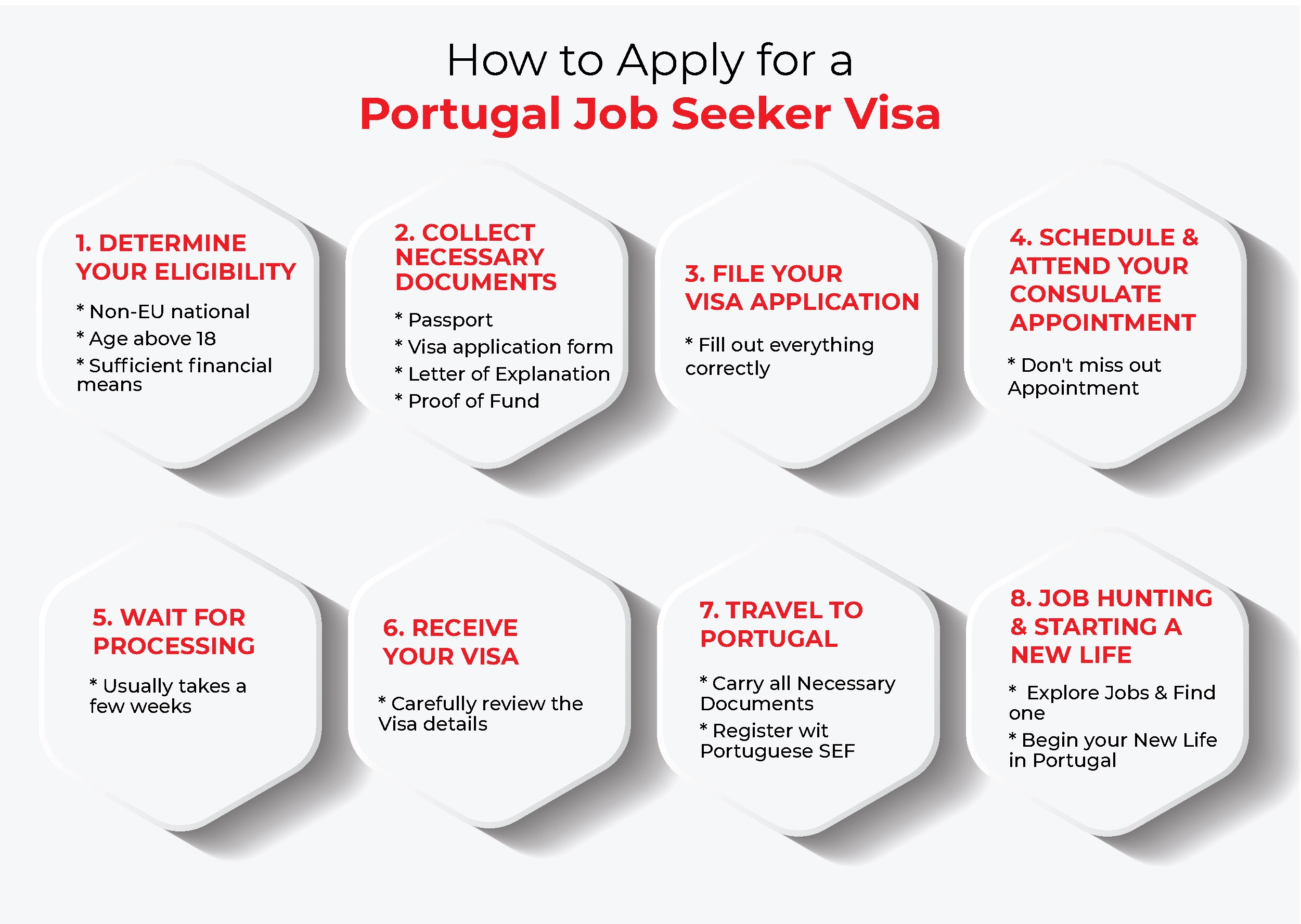
Step 1: Determine your Eligibility
Before starting your application, make sure you meet all the eligibility criteria. To qualify, as we mention in the eligibility you must be a non-EU national, at least 18 years old, and have sufficient financial resources.
Step 2: Collect Necessary Documents
Collect all the required documents as we mention above. Properly organising these documents in advance and double-checking it will help you streamline the application process.
Step 3: File Your Application
Filling out the job seeker visa application form correctly, paying the application fee, and scheduling and attending your visa appointment at the Portuguese consulate or embassy will be the next step.
Step 4: Wait for Visa Processing
After your appointment at the embassy, your application goes through processing, which usually takes several weeks. During this time the consulate or embassy might reach out to request additional information from you. Wait for your visa approval.
Step 5: Receive Your Visa
After your visa gets approved you will be informed. Make sure to review the visa details carefully from the validity period to the number of entries.
Step 6: Travel to Portugal
With your visa, you can travel to Portugal, ensure you carry all the necessary documents, and within 3 days of reaching there register with the Portuguese Immigration and Borders Service (SEF).
Step 7: Job Hunting and Starting a New Life
You can begin your job search using different methods never forget to use credible sites like Indeed. pt, Linkedin, Expresso Emprego, SAPO Emprego, etc. After finding a job you can go for the PR and start a new life there
Portugal Job Seeker Visa Fees
The cost of Job Seeker Visa is relatively affordable and may vary based on the consulate where you apply. For a single applicant, the expected fees are given below.
| Portugal Job Seeker Visa Fee | Cost |
|---|---|
| Entry visa application fee (consulate) | €90 |
| Residence permit fee (SEF) | €170 approx. |
Portugal Job Seeker Visa Processing Time
The Portuguese authorities do not have a fixed processing for your application. The duration depends on where you applied and the workload of the application center at that time. Typically it takes a minimum of 60 days from your Portuguese job seeker visa application date.
Portugal Job Seeker Visa vs Other Portugal Visas
Portugal has different types of visas including
Short-Term Visa: This allows single and multiple entry for a span of a few days to 5 years.
Temporary Stay Visa: This allows multiple entries for up to one year. It is granted to students, employees, interns, and those who come for the cause of medical and religious causes.
Job Seeker Visa: This is a single entry visa with the sole intention of job hunting for the span of 4 months and can extend up to 2 months.
Residence Visa/ Type-1 Visa: These are long-term visas that can be used by people who want to live indefinitely. Such as relatives of Portuguese nationals or residents, employees, students, and those who have passive income.
There are several visas under each category we can discuss the important ones. You can understand the major differences between Portugal job seeker visa with other Portugal visas by thoroughly going through the table below
| Visa | Purpose | Eligibility | Advantages |
|---|---|---|---|
| Portugal Job Seeker Visa | Job search | Above the age of 18 and sufficient financial means | Chance to get a job in Portugal and potential to obtain a work visa |
| Portugal Family Visa | Family reunification | Relatives of Portuguese citizens or residents | Allows family members to live with their loved ones |
| Portugal Passive Income Visa | Passive income generation | Source of income must be outside Portugal | Low minimum income required and path to PR |
| Golden Visa | Investment | Investment of €280,000 or more in real estate or other eligible assets | No physical residency required; fast-track to PR |
| Start-up Visa | Entrepreneurship | Creative business idea and a minimum investment of €50,000 | Support for entrepreneurs and path to PR |
| Student Visa | Education | Admission to a Portuguese educational institution | Access to the Portuguese education system |
Conclusion
Portugal job seeker visa is a ticket to your bright future in one of Europe’s most dynamic job markets. With the right understanding, you can do the perfect planning for the visa and turn this opportunity into a stepping stone for long-term success. So after the perfect knowledge of this visa, why wait? Your journey to Portugal begins here. Be a part of CanApprove Success Story!


